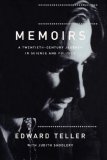Summary | Excerpt | Reviews | Readalikes | Genres & Themes | Author Bio

Critics' Opinion:
Readers' Opinion:
First Published:
Oct 2001, 544 pages
Paperback:
Sep 2002, 627 pages
I had learned the rule of nines: If I added the numerals in numbers evenly divisible by 9 (18, 27, 36), the result would be 9. (If the result has more than one digit, the process must be repeated.) For numbers not evenly divisible by 9, the total of the numerals will be the remainder. To my delight, our mathematics teacher, Ireneus Juvancz, explained the reason behind that surprise.6
Understanding war and politics was impossible. Numbers were much more reasonable. I always understood and enjoyed what Juvancz had to say about mathematics. But Juvancz was also a dedicated communist, and his comments on that topic were confusing.
The communist movement in Hungary, led by Bela Kun, started shortly after the end of the war. Kun, a former army officer and a Jew, was captured early in the war and held in Russia. He and a few hundred other Hungarian prisoners of war became thoroughly indoctrinated as communists. They were promptly repatriated when the war ended in 1918. The postwar period in any nation, and especially in a defeated nation, is a difficult period; for an inexperienced democratic government, it proved overwhelming.
Early in 1919, four Budapest policemen were killed by a few unidentified communists. The memorial service for the policemen was held in Parliament Square. A friend of my father's had an apartment with a balcony overlooking the square, and my father, his friend (and his dog) and I watched the ceremony from there. The crowd was the largest I had ever seen: Close to a hundred thousand people had gathered. The funeral march from Beethoven's Third Symphony, which I had never heard before, was played.
Prime Minister Karolyi arrested the leaders of the communist party for the murders, even though they had not been directly involved. The arrests met with little public support. Then, a little later, the terms ending the war were presented to the Hungarian government. That settlement not only dismantled the Austro-Hungarian empire but tore the thousand-year-old nation of Hungary apart and distributed it to other nations. Under the Treaty of Trianon, Hungary was reduced from a nation of 18 million people of various nationalities to one of barely 8 million. Almost half of those who were ethnic Hungarians were to live under foreign rule.
The new democracy could not survive the loss of more than half its territory and almost half its people. In mid-spring of 1919, when I was eleven years old, the communists took over. The hope that some people held that the Soviet Red Army, stationed about two hundred miles away, might help restore the old boundaries if Hungary became a communist country; contributed to the acceptance of the communist takeover.?
The Communist Party included perhaps one-tenth of one percent of the Hungarian people; only the communists' discipline, organization, and disregard for law enabled them to gain control. The Social Democrats, who vastly outnumbered the communists, had only a program of slow reform within the law.8 They were coaxed into supporting the government formed under Bela Kun, but even though the Social Democrats represented many more people than the communists, they had no influence on Kun's policies.
The communists overturned every aspect of society and the economy. My father could no longer practice law. In fact we became social outcasts. A lawyer was clearly a capitalist; and, unlike a doctor, who provided a service, a lawyer was a thoroughly worthless person in a "good" society. Two soldiers moved into our "extra space," the rooms that had been my father's office in our home.
The old blue money, unlike the communists' white money, still had some value, but the communists demanded that it all be turned in. Magda Hesz, who worked for our family as a sort of au pair, resourcefully used her skill in binding books to hide our family cash in the backs of the books in my father's office. Having soldiers billeted in our "bank" was a grave concern for my parents, but the soldiers never found our money. In retrospect I remember only that they were self-conscious about being in our home and tried hard to stay out of the way.
From Memoirs by Edward Teller. Copyright 2001 Edward Teller. All rights reserved. No part of this publication may be reproduced or stored in any form without the prior written permission of the publisher, Perseus Books.





The House on Biscayne Bay
by Chanel Cleeton
As death stalks a gothic mansion in Miami, the lives of two women intertwine as the past and present collide.

The Flower Sisters
by Michelle Collins Anderson
From the new Fannie Flagg of the Ozarks, a richly-woven story of family, forgiveness, and reinvention.

The Funeral Cryer by Wenyan Lu
Debut novelist Wenyan Lu brings us this witty yet profound story about one woman's midlife reawakening in contemporary rural China.
Your guide toexceptional books
BookBrowse seeks out and recommends the best in contemporary fiction and nonfiction—books that not only engage and entertain but also deepen our understanding of ourselves and the world around us.